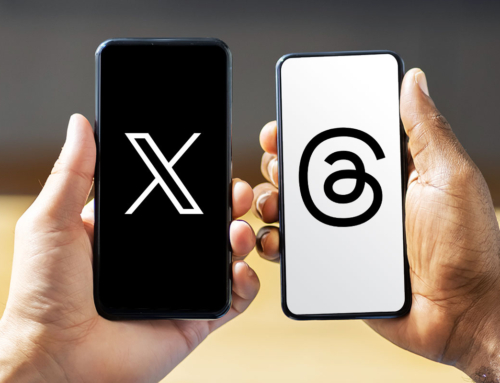The new social media platform Clubhouse is less than a year old but is already valued at over $1 billion and is promoted by influencers ranging from Oprah to Elon Musk. What is Clubhouse, what sets it apart from other platforms and how can you use it for your business?
What is Clubhouse?
Clubhouse describes itself as a “new type of social network based on voice — where people around the world come together to talk, listen and learn from each other in real-time.” Rather than hosting interactions through text and video, Clubhouse fosters connection entirely through audio chat.
Clubhouse’s chat rooms are divided into three sections: the stage, reserved only for speakers; individuals listening who are also followed by the speakers on the stage; and the listeners, the muted audience who can only speak when called upon via a virtual hand raise. This format may sound like a podcast/Zoom call hybrid, except these conversations only exist in real-time — recording conversations on the app without the speakers expressed permission is strictly prohibited. The result is an interaction that is perishable, more authentic and less scripted.
At the moment, Clubhouse is only available on iOS and is only accessible via an invite from other users (download the app to see if any of your friends can invite you). But once you are in the platform, you’ll find endless opportunities for you and your business. Here are just a few:
Create, host and monetize panel discussions
As we discussed above, the discussions that happen in Clubhouse rooms occur in real-time, meaning that unless you allow your listeners to record, any discussion you host through the app is inherently a perishable product. By confining your event to a “live-only” format, your audience is more likely to experience FOMO and will be further incentivized to take part
You can even monetize attendance through third-party tools like Eventbrite. Guests can provide their Clubhouse username upon purchase to land a spot on the invite-only guest list. But remember, the onus falls on you as a host to invite every username that purchased a ticket.
Create a club
Once you’ve established yourself through the Clubhouse app (that is, you’ve hosted three regularly scheduled rooms), you’ll have the ability to create Clubs. Similar to Facebook groups, clubs are communities for Clubhouse users to engage with one another over a common interest. They are also a great opportunity to foster a community around or related to your brand.
Club users are separated into three types: Administrators/Founders, Members and Followers. Administrators/Founders and Members have access to all club rooms, both private and public, while Followers only have access to public rooms.
Say you’re in charge of a neighborhood community council. To connect with your neighbors, you start a club for your local community and schedule weekly public rooms. But if you want to limit participation to your fellow councilmembers, you can easily restrict membership to those select individuals and host a private room. Whether your club centers around your neighborhood, hobby or your brand, regularly scheduled rooms provide the opportunity to deepen the relationship with your followers and provide transparent and open communications.
Take the stage or raise your hand in high-profile rooms
You don’t have to create a club, host a room, or even be on an official panel to get into the spotlight. Whether you’re a brand or a professional looking to earn industry clout, participating in relevant, high-profile discussions will allow you to position yourself as a thought leader.
Even if you don’t have an invite to speak on a panel, raising your hand and making meaningful contributions as an audience member can still leave a lasting mark. If you do have the opportunity to speak, do so with confidence. At the end of the day, every interaction you make has the potential to grow your audience and, quite literally, your voice. Make every word count.
To learn more about Clubhouse and to download, click here.








